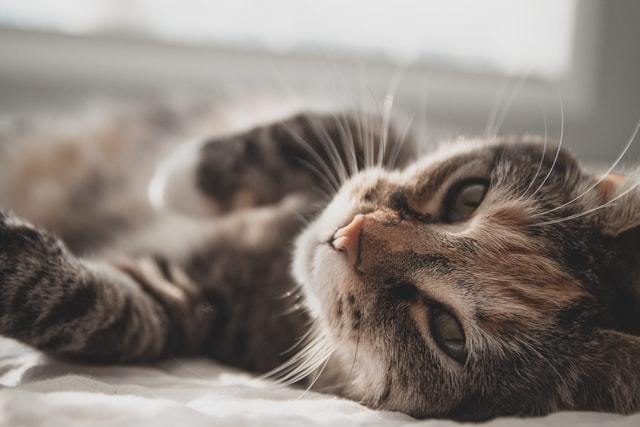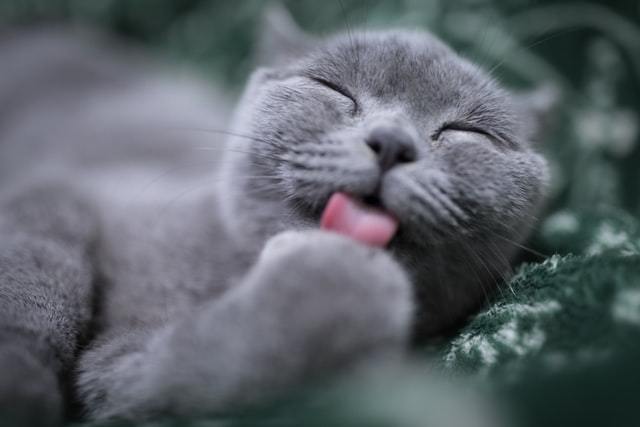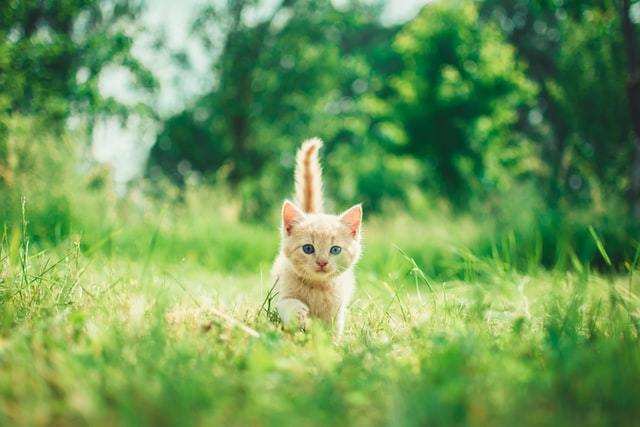If you’re one of those humans lucky enough to have a cat in your life, you’re probably familiar with those “moody days”. One day they’ll be all over you for chin scratches and belly rubs and the next they’ll stare daggers at you if you dare to clear your throat while they eat breakfast!
All that is just a normal (and let’s face it, kind of fun) part of cat life.
However, if you’re noticing your furry buddy becoming more grumpy over time, you may be looking at a bigger issue. An early 2000 study on cats and joint pain revealed that as many as 90% of senior cats experience degenerative joint disease.
This is a painful condition, and if not dealt with properly will seriously undermine your cat’s enjoyment of life.
In this article I’ll give you the scoop on the big causes of joint problems in cats and how you can make sure your illustrious feline overlord is as joint-pain free as possible.
OLD AGE

I’m just going to come out and say it - old age stinks. It’s an entirely unpleasant state of affairs, and not just for humans. Cats have to deal with the same kinds of nonsense.
In the USA over the last decade, thanks in large part to improved veterinary care, the percentage of cats in their senior years has almost doubled from 24 to 47%. This is great news, of course. I mean, where would we all be without the venerable wisdom of grumpy cat?
The problem is that cats in their old age will typically experience arthritic pain in one or more joints.
Build good fats and protein into your cat’s diet
To combat this, you’re going to need to transition your long-in-the-fang buddy to a diet rich in omega 3 fatty acids. Studies show that cats fed a diet high in omega 3 are more mobile and free of arthritic pain.
Older cats also need animal-based protein, and lots of it. Protein protects muscle and cartilage from declining in old age.
Consider joint supplements
For extra feline brownie points, look for supplements which include glucosamine and chondroitin. These promote healthy joint and cartilage health.
OBESITY

I’m going to be the first to put my hand up in confessing that I like to give my cats human treats. For my three bengals, their decadent snack of choice is dried liver. If I give them a tiny chunk I’ll be in their good books all day.
Make sure your cat is on a lean, balanced diet
While the occasional naughty treat is fine, it’s really important to keep your cat’s weight down with a healthy, lean diet.
Extra weight puts strain on their limbs and will greatly exacerbate any existing joint problems. Also, fatty tissue secretes inflammatory hormones which in turn makes arthritis worse.
A balanced, scientifically-formulated diet is key in keeping the pounds off and helping your furry friend stay happily active.
NORMAL WEAR AND TEAR
From my experience, cats usually possess two (sometimes mutually unfortunate) characteristics: fearless curiosity and insane athletic ability. If there’s an interesting looking place to jump up on or squirm under, you can bet they’ll try it sooner or later.
It’s probably not all that surprising then that cats place a lot of wear and tear on their joints and can be a tad injury prone.
While you probably won’t be able to convince your cat to be more sensible, one thing you can do to help is to maintain a good line of communication with your vet.
If in doubt, see a vet!
If you see your cat limping or in distress, it goes without saying that the best thing you can do is get your cat to the vet as soon as possible. You may also wish to ask your vet to screen for genetic conditions which can worsen joint pain, such as hip dysplasia. They can also advise on appropriate pain medication for long-term conditions.
While arthritis and joint pain are pretty common in cats six years and over, there is good news. With the right combination of nutrients, a healthy diet and good veterinary care, chances are your svelte and bewhiskered companion can remain mischievously active until well into old age.
Just remember to keep those treats well hidden!




